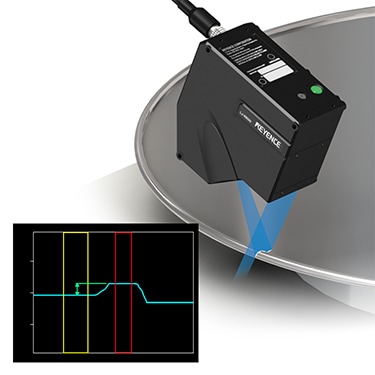Shape / Profile
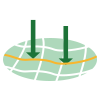
When selecting a sensor for 2D measurements, the first step is to choose a method for generating a profile of the target. This can be performed by scanning a 1D sensor over a surface, using a laser line, or working from a 3D image. The target material, shape, and size will all play a role in determining the best fit. Check out some typical methods below, or request a free consultation with a measurement expert.
Measure fine details on touch panels regardless of surface finish with confocal sensors. With a beam spot of 3.5μm, even the smallest features can be measured.
Confocal Displacement Sensor
CL-3000 series

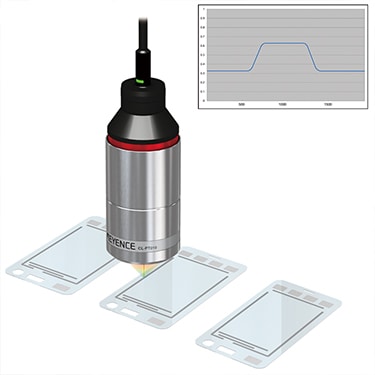
Profile tire treads and sidewalls with multiple 2D laser profilers.
High-speed 2D/3D Laser Profiler
LJ-V7000 series

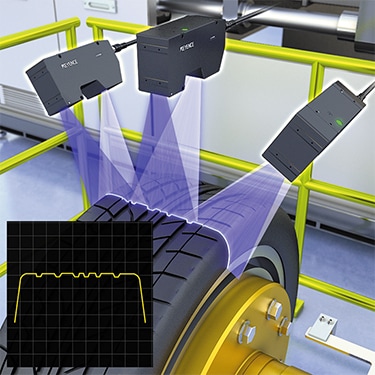
Using 2D thrubeam sensors, medical balloons can be inspected inline at high-speed.
High-speed 2D Optical Micrometer
TM-3000 series

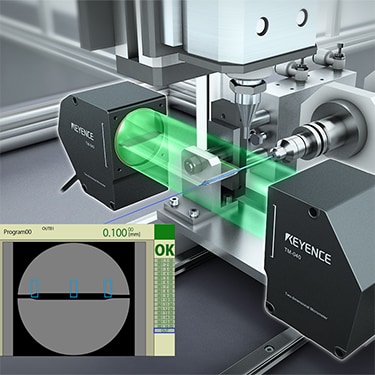
Inspect for lamination misalignment after winding. With a minimum X-resolution of 10 μm, the LJ-V7000 Series accurately measures the profile of each electrode.
High-speed 2D/3D Laser Profiler
LJ-V7000 series

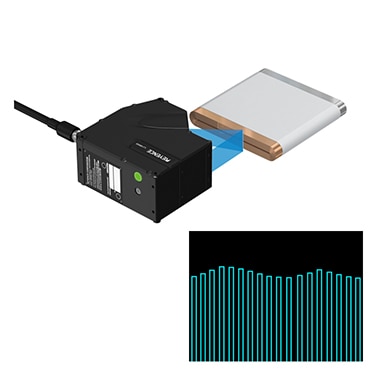
Provide feedback about disconnected locations in electrodes before lamination. Accurately acquire the profile of electrode terminals to perform high-accuracy inspection of edge locations.
High-speed 2D/3D Laser Profiler
LJ-V7000 series

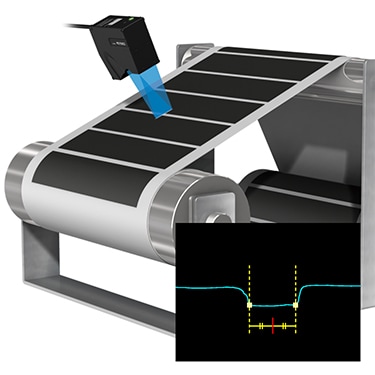
Measure the profile of a wafer edge. By selecting one of the inspection tools such as Height Difference/Width or Angle, users can start measurement easily. The ultrahigh-resolution image capturing using 800 points/profile achieves highly accurate profile measurement that was impossible with conventional methods.
High-speed 2D/3D Laser Profiler
LJ-V7000 series

